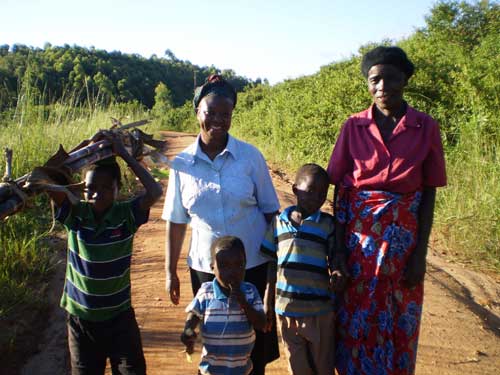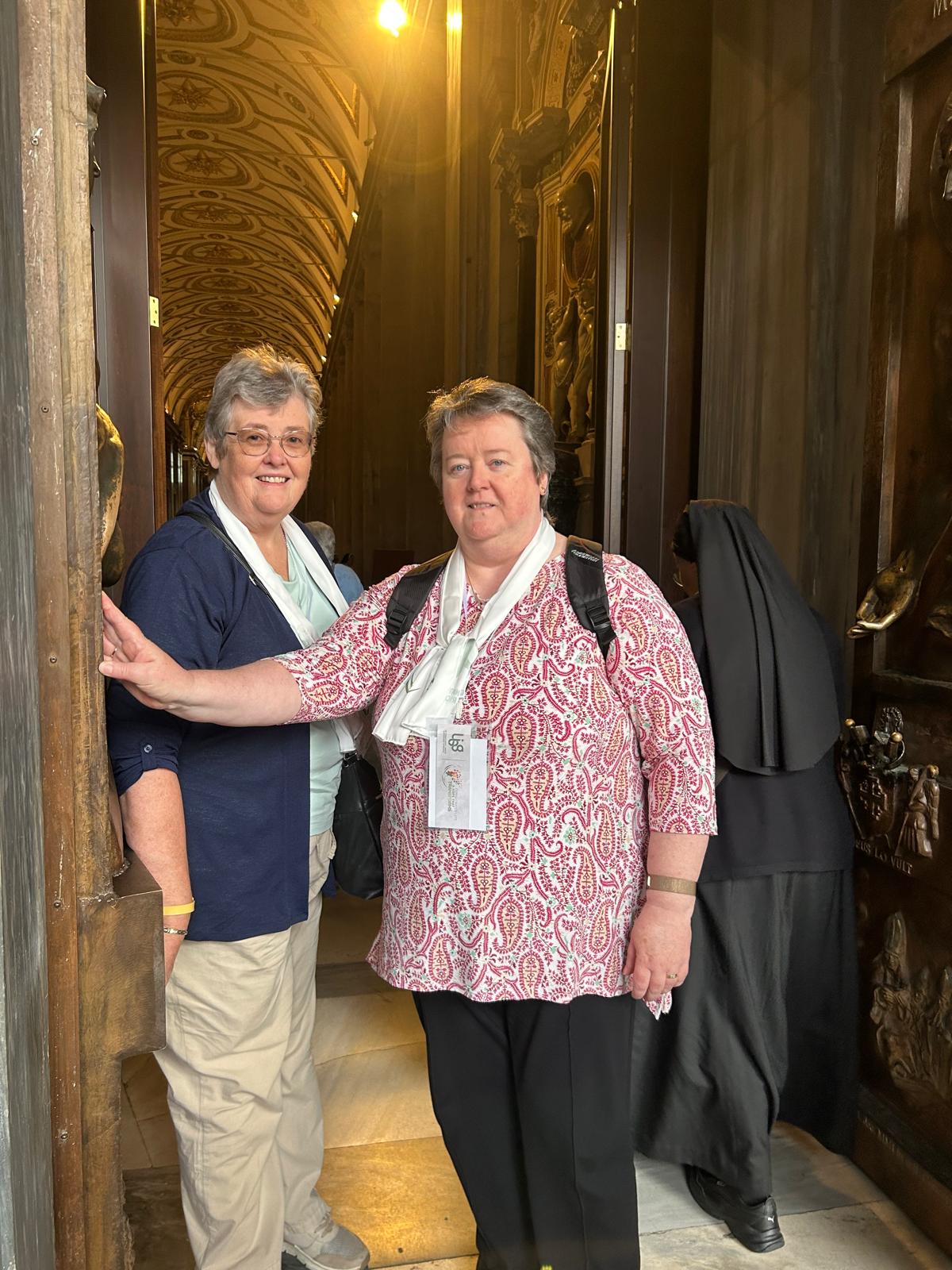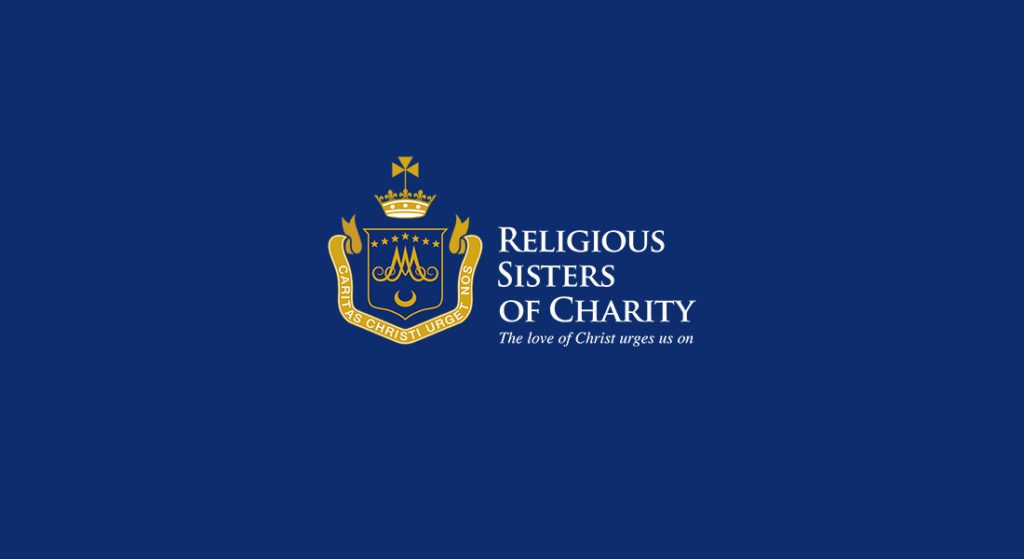
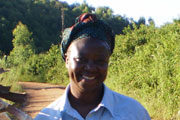 This month we have an update from Konzalendo in Malawi from Sr Maria Shawa. She tells us what has been happening recently in our new mission…
This month we have an update from Konzalendo in Malawi from Sr Maria Shawa. She tells us what has been happening recently in our new mission…
Konzalendo, though it has no resident priest, has thirteen outstations and as you drive to visit them you see the beautiful scenery – mountains, valleys and streams – though some of the roads are rough with some bumps and rocks. Konzalendo parish is divided into six ‘Small Christian Communities’ (SCC). The six SCC are known as ‘Konzalendo 1,2,3…etc. up to 6. Unusually, they are not named after saints.
The SCC hold their meetings every Thursday. I am trying to visit all of them. When I went to visit Konzalendo 3, I discovered that they don’t meet. The first time I went there, since I did not know where they met, on my way I met two parishioners and I asked them where they met. They laughed at me and said, “We do not meet, you should have told us in advance that today you were coming to our SCC and we would have spread the news to others for us to meet. You will be the only one there”. So I said to the two, “If the two of you come with me, there will be three of us there”. Then they said, “In that case, let us tell our children to go and tell some parishioners that Sister is meeting us today at our SCC”. Having agreed with them I went with them to the gathering place. As we were on our way they were shouting at some parishioners, “Let’s go to the SCC. Sister is meeting us today”.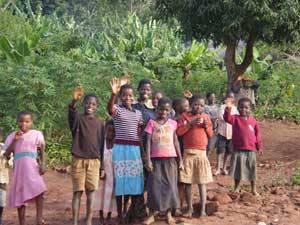 The three of us reached the place of gathering and we waited. When there were twelve of us we started the meeting. I continued to go to this SCC every week and each time I was the first one to arrive. I would wait and if four or five came I would start the meeting. Slowly the number attending each week started increasing. They then started coming in big numbers and I gave then a talk on the importance of attending the SCC and why we have SCC. I was touched one day as I was passing through a field to see a big number of them working together on a certain farm. I stopped to greet them and asked them what they were doing. They answered, “We are trying to fund raise for our SCC”. It has now become one of the strongest SCCs in the parish. I now go there once in a while. It just shows that a bit of encouragement can produce wonders.
The three of us reached the place of gathering and we waited. When there were twelve of us we started the meeting. I continued to go to this SCC every week and each time I was the first one to arrive. I would wait and if four or five came I would start the meeting. Slowly the number attending each week started increasing. They then started coming in big numbers and I gave then a talk on the importance of attending the SCC and why we have SCC. I was touched one day as I was passing through a field to see a big number of them working together on a certain farm. I stopped to greet them and asked them what they were doing. They answered, “We are trying to fund raise for our SCC”. It has now become one of the strongest SCCs in the parish. I now go there once in a while. It just shows that a bit of encouragement can produce wonders.
We do a lot of home visitation and I also visit the homes of the children to whom I teach catechism, especially those whose attendance is poor. Home visitation in Konzalendo is no joke! It means going up and down the mountains. At first we found it very tiring but now we are getting accustomed to it. However, I use a walking stick for support where the land is very steep. Visitation has helped me to get to know a bit about the Malawian way of life in practice and not in theory. Through visitation I discovered there are many other needs. For example, when I am visiting I find that I do a bit of counselling – people open up and start talking about the problems they are facing. In most cases it is marriage problems or their children misbehaving. One couple I met were separated, but in talking to both wife and husband, I was happy to see them reconciling, reuniting and living happily together once again. Others are encouraged to have their marriage blessed in church. I also visit the sick and arrange for a priest to give them the sacrament of the Eucharist, since we are not yet permitted to bring the Eucharist to the sick.
I also teach adults catechism, at times giving retreats and attending church council meetings.
In March 2012 the three sisters living in community here in Konzalendo went to Cape Town, South Africa, to The Grail Centre for three weeks intensive study on Training for Transformation. The schedule was tight! We started classes at 9am and finished at 9pm with a very short break at lunch-time. They tried to squeeze so many things in a short time with little space for digestion. However, it is a very good course for self-transformation and to help others to be agents of their own transformation and development. The course was also helpful to us in that it has given us tools on how to develop projects. The three weeks we did in March was Phase 1. Phase 2 began when we came back to Konzalendo. We were given home assignments and had to facilitate a workshop. The theme of our workshop was “Lack of skills among the youth of Konzalendo”. 29 attended the workshop – twenty youths and nine parents. A supervisor came from Lilongwe to observe our facilitation and she wrote a report on us which she submitted to The Grail Centre.
In June we went to Cape Town again for another three weeks of intensive study which was Phase 3. Phase 4 was home assignments and the facilitation of another workshop. The second workshop was for women of all denominations and the theme was “Gender Based Violence”. Almost 200 women attended the workshop. They came up with three proposals:
1. Micro-finance Banking
2. Literary Classes – as a way of empowering themselves to be self-reliant
3. A repeat of the same workshop to be addressed to their husbands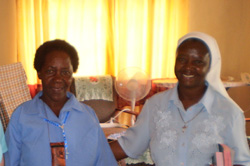 The literary classes are going to start in November. We have identified some teachers and we have got literacy books from the Government. We are still researching the Micro-financing.
The literary classes are going to start in November. We have identified some teachers and we have got literacy books from the Government. We are still researching the Micro-financing.
We have also identified a HIV/AIDS support group (they call themselves a Community Based Organisation). Two hundred are registered with this group but only 36 are regular attenders. They meet every Wednesday to support each other and have talks on living with HIV/AIDS. Some of their objectives are to care for orphans, to give home-based care to the sick and to support each other both physically and spiritually. We have given small loans to start businesses to help them look after themselves. The loans were only given to the 36 regular attenders.
When we travel around the out-stations we find that most people have the same concerns which are:
• Lack of books for Sunday services
• Lack of books to teach catechism classes
• The Church building being in bad shape
• Lack of Health Centres
• Overcrowding in school classes
• Lack of farming supplies like fertilizer and seeds
• Lack of boreholes
At the moment we are working with the people to do something about the lack of church books and boreholes.
